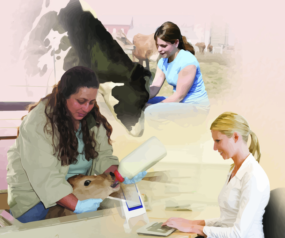Dairies, farmers and rural populations receive lines of credit to help run their operations from institutions such as the Farm Credit System, Farmer Mac, Farm Service Agency, as well as local banks. The following are statements from the House Agriculture Committee’s Subcommittee on Livestock, Rural Development and Credit public hearing on June 25, which reviewed credit availability in rural America.
“Government resources are increasingly limited, and the agriculture production landscape is changing. It will require every bit of innovation, management expertise and determination we can muster to maintain the efficiency and efficacy of farm loan programs over the next several years … These changes pose significant barriers and challenges to the groups that FSA farm loan programs are intended to assist.”
—Mr. Chris Beverhelm
Deputy administrator for farm loan programs, Farm Service Agency, U.S. Department of Agriculture, Washington, D.C.
“While we are proud of our record and accomplishments, we remain committed to excellence, effectiveness and cost efficiency, and we will remain focused on our mission of ensuring a safe, sound and dependable source of credit for agriculture and rural America.”
—The Honorable Jill Long Thompson
Board chair and CEO, Farm Credit Administration, McLean, Virginia
“Farmer Mac continues to provide a stable source of liquidity, capital and risk management tools to help rural lenders meet the financing needs of their customers. With a diverse array of lending products and capital sources, Farmer Mac is well positioned to provide rural America with the sophisticated and low-cost lending products demanded by today’s rural borrowers.”
—Mr. Timothy L. Buzby
President and CEO, Farmer Mac, Washington, D.C.
“When our customer-owners achieve success, our business will succeed as well. Farm Credit’s lending relationship with our member-borrowers is based on constructive credit over the long haul – we make loans, retain loans and service loans. Farm Credit does not enter and exit agricultural lending as farm profitability waxes and wanes.”
—Mr. Bob Frazee
President and CEO, MidAtlantic Farm Credit, ACA, Westminster, Maryland; on behalf of the Farm Credit System
“The actions of the Farm Credit System undermine the availability of credit in rural America, as they seek to drive out other providers of credit by leveraging their unique government-sponsored enterprise (GSE) advantages in their efforts to lend to the very best customers and often ignoring producers in a weaker financial position. Is that really what the purpose of a GSE should be?”
—Mr. Sean H. Williams
President and CEO, The First National Bank of Wynne, Arkansas; on behalf of the Independent Community Bankers of America
“The face of agriculture in this country is undergoing dramatic transformations. Our federal support structure and safety net has been adapting in response to these changes and must continue to do so if we aspire to be efficient with our limited natural and financial resources, increase equity and fairness in our delivery of programs, and embrace those who seek to produce our food, fiber and fuel, now and in the future.”
—Mr. Brett Melone
Loan officer, California FarmLink, Santa Cruz, California; on behalf of the National Sustainable Agriculture Coalition
“If profit margins remain under pressure in the crop sector and debt continues to rise, the ability of crop producers to withstand an increase in financial stress may be a concern, even as the outlook for the livestock sector has improved. Farmers with lower levels of equity, including young and beginning farmers, may be most vulnerable to financial stress, particularly if cropland values fall and farm income declines from its historically high levels, as projected by USDA and Federal Reserve surveys.”
—Mr. Nathan S. Kauffman
Assistant vice president, Federal Reserve Bank of Kansas City, Omaha Branch, Omaha, Nebraska
“The banking industry is well positioned to meet the needs of U.S. farmers and ranchers. U.S. agriculture has enjoyed one of the longest periods of financial prosperity in history; financially, American agriculture has never been stronger. As a result, farmers and ranchers today have the capacity to tap their equity should there be a decline in farm profitability resulting in diminished cash flows.” PD
—Mr. Leonard Wolfe
President and CEO, United Bank & Trust, Marysville, Kansas; on behalf of the Independent Community Bankers of America





